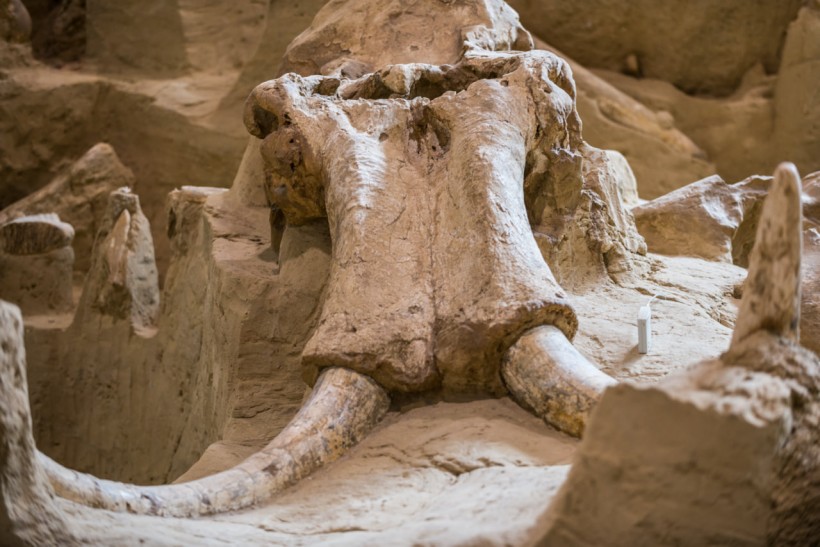
(Photo : Colossal Biosciences: Reviving the Dodo and the Woolly Mammoth With $200 Million in Funds)
Turns out calling someone "dumb as a dodo" isn't the flex you might think it is - and Colossal Biosciences is ready to right that wrong by resurrecting the long-extinct bird that's become the poster child for self-inflicted stupidity.
The dodo's bad rap started when it became extinct on the Indian Ocean island nation of Mauritius sometime in the late 1600s. The prevailing wisdom was the beast was dense enough to have driven itself to extinction. However, modern research suggests that the dodo's brain was as big as a pigeon's - meaning that while this bird wasn't exactly a genius, it also wasn't stupid. What drove it to extinction? And why are the scientific disruptors at Colossal Biosciences bringing it back?
Colossal Biosciences: People Erased the Dodo
"The dodo is a prime example of a species that became extinct because we - people - made it impossible for them to survive in their native habitat," said Beth Shapiro, Ph.D. Shapiro is the lead Paleogeneticist for the dodo revival project and sits on Colossal's scientific advisory board.
"Having focused on genetic advancements in ancient DNA for my entire career and as the first to fully sequence the dodo's genome, I am thrilled to collaborate with Colossal and the people of Mauritius on the de-extinction and eventual re-wilding of the dodo. I particularly look forward to furthering genetic rescue tools focused on birds and avian conservation."
A recollection of history will tell you that these odd-looking creatures were native to Mauritius. However, the dodo population started to dwindle after the arrival of Dutch and Portuguese merchant ships bringing with them a host of invasive species such as rats and pigs. These invasive species competed with the indigenous animals for resources and drove one to extinction.
And here's where Colossal Biosciences joins the chat.
'Jump-Start Nature's Ancestral Heartbeat'
Colossal Biosciences was co-founded by George Church, a renowned Harvard geneticist, and Ben Lamm, a serial tech entrepreneur. On its website, the company claims it will combine "the science of genetics with the business of discovery; we endeavor to jump-start nature's ancestral heartbeat." The dodo is one of the three animals the company is striving to revive. Other creatures include the woolly mammoth and the Tasmanian tiger. In doing so, the company is working with leading researchers worldwide who have spent years researching these critters.
Shapiro is optimistic about the chances of this project being a success because of her long history of working on dodos. She became the first person to fully sequence the flightless bird's genome because of sheer dedication and a little nudge from Lady Luck.
Shapiro was able to extract a sample from a specimen in the Natural History Museum in Copenhagen, Denmark. This extraction brought Shapiro and Colossal a step closer to the revival of the dodo.
Colossal Biosciences' Star-Studded Slate of Investors
Shapiro's optimism about the dodo project is shared by Colossal's investors. The company has attracted A-list celebrities, such as acting brothers Chris and Liam Hemsworth and socialite Paris Hilton. After a $60 million cash injection in March 2022, the company has received another $150 million in a Series B funding round. Part of these funds will be put toward the de-extinction of the iconic fowl.
Colossal provided an update on another of its revival projects, the woolly mammoth.
To bring back the woolly mammoth, the company's team of over 40 scientists will be relying on the closest DNA phenotype of the woolly mammoth, the Asian elephant. Using the Asian elephant genome as the blueprint, the company will then cut parts of the Asian elephant DNA and paste the woolly mammoth DNA in its place. The scientists will then test the hybrid cells, perform embryo transfer, then implant this embryo into a surrogate (or in vitro) uterus. The result will be a hybrid between the Asian elephant and the woolly mammoth. The company plans to reintroduce the woolly mammoth hybrids to the Siberian tundra in the hopes of fighting climate change. Harvard geneticists argue that as the beasts stomp the earth, they will in turn help slow the thaw of permafrost and keep the ground colder for longer.
Colossal is also working on restoring the Tasmanian tiger, or thylacine, to its native Australia, partnering with the Thylacine Integrated Genetic Restoration Research Lab at the University of Melbourne.
Colossal considers its work to have far-reaching benefits and is hoping to spur advancements in the environmental and medical fields.
"Genetic technologies are already protecting us and our food sources from infectious and inherited diseases," said Church. "A society embracing endangered and extinct gene variants is one poised to address many practical obstacles and opportunities in carbon sequestration, nutrition, and new materials."
"Colossal Biosciences' work could be a net positive for humanity", says Lamm, pointing out it "will inevitably have utility in the human health care field. We'll be building new tools to enable more complex editing protocols which will advance the state of the art when compared to what is available in the health care industry."
* This is a contributed article and this content does not necessarily represent the views of hngn.com








